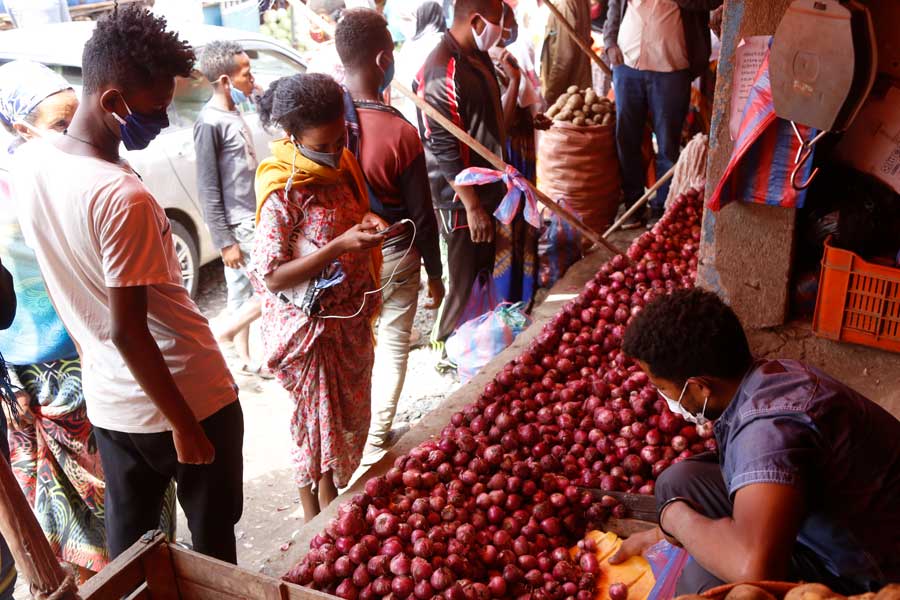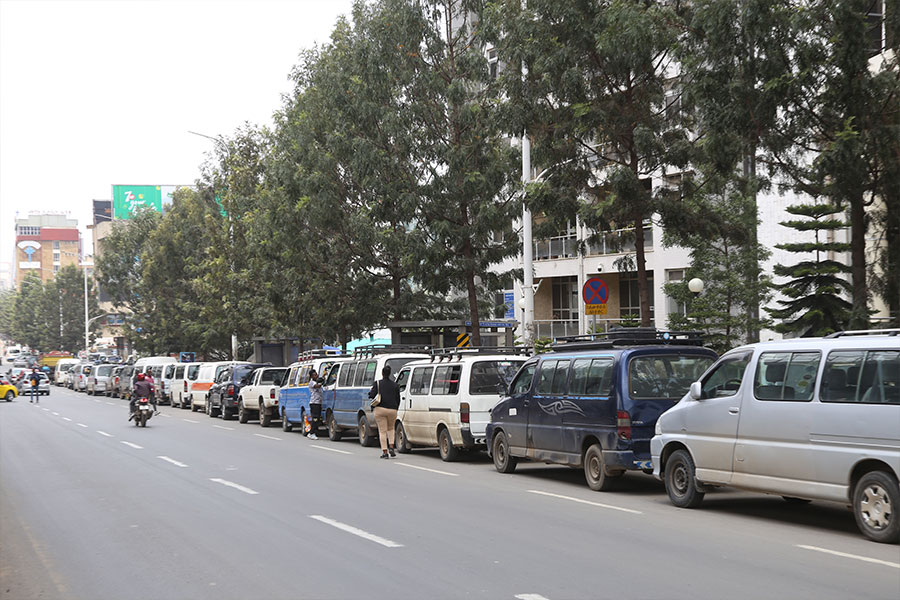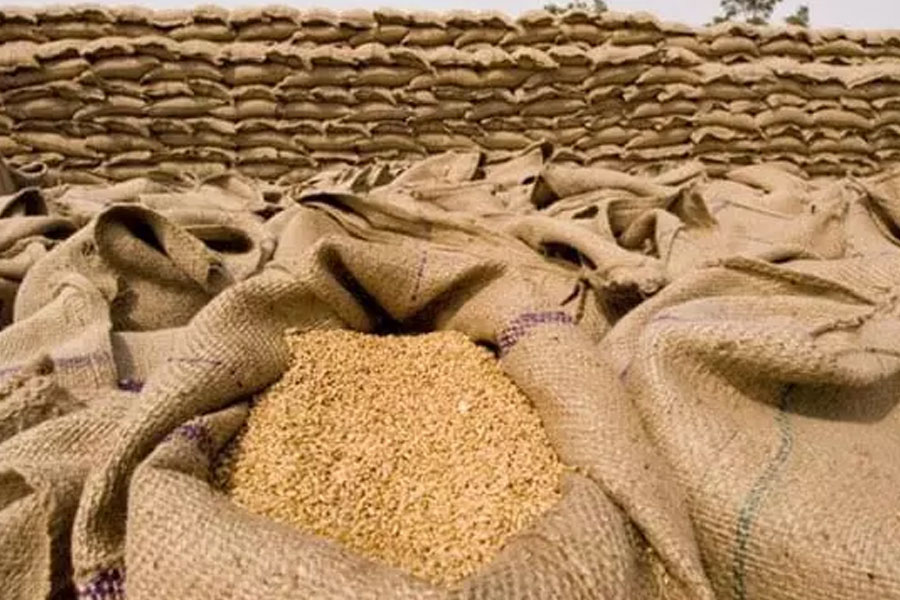
Fortune News | Apr 02,2022
Federal authorities’ efforts to buy 20 million litres of edible oil remain at a standstill as negotiations with the supplier are afoot. A company headquartered in San Francisco entered into a contract with the state-owned Ethiopian Industrial Inputs Development Enterprise (EIIDE) in April to supply sunflower oil for 30 million dollars.
Alpha Capital Ventures Ltd has agreed to receive payments through a deferred letter of credit. It is a business practice that allows the federal government to settle the bill in a year, after the supplier delivers the oil. The deal compels the Enterprise to provide a sovereign guarantee from the federal government if it defaults on the payment.
“We’re negotiating to finalise the deal,” Solomon Girsha, deputy chief executive officer (CEO), told Fortune.
Established in 2015 with a paid-up capital of four billion Birr, the Enterprise buys and distributes essential consumer items such as cooking oil and sugar through 83 outlets. It also imports inputs for manufacturing industries.
The Enterprise recently concluded the procurement of 10 million litres of palm oil from Golden Africa, valued at 20 million dollars. Golden Africa is a subsidiary of the Malaysian Pacific Inter-Link, the palm oil processing and refining business. The company runs a plant in Djibouti with the capacity to refine 9,000tns of palm oil monthly.
The Enterprise faces rising rail transport costs to ferry the oil from Djibouti; it pays a little over 118,000 Br a wagon. Built with 4.2 billion dollars in credit from the Chinese Export-Import Bank, the Ethio-Djibouti Railway transports five percent of all cargo shipped to and from Djibouti.
The Enterprise has thus far transported five million litres of palm oil. Nonetheless, the volume falls far short of the national demand estimated at over 850 million litres annually. Supply is sufficient to meet only two-thirds of demand.
Over 410 million litres of cooking oil have been imported, valued at 23 billion Br, since last September. Refined palm oil accounted for a third, while sunflower oil comprised 43pc.
Shortages and volatility in the edible oil market are expected in Addis Abeba, where monthly demand reaches seven million litres. Last March, the price of a five-litre sunflower oil bottle doubled overnight from a retail price of 590 Br. The issues pushed officials at the Addis Abeba Trade Bureau to distribute essential commodities at subsidised rates through 140 cooperatives for over a decade.
However, the city administration can only meet two-thirds of the demand, disclosed Daniel Mieassa, director of public relations.
A consumers’ cooperative in Wereda 06 of Kirkos District is among the city’s trade bureau partners. It receives a monthly 3,400 litres of edible oil from the federal government at a subsidised price, retailing five litres for 733 Br.
Simret Gelana, sales officer, told Fortune that the stock available could only satisfy a quarter of the demand. Close to 1,300 households buy essential commodities from the cooperative using coupons.
The small- and medium-sized palm oil processing plants that source inputs locally barely make a dent in filling the countrywide gap. They account for 10pc of the supply. Domestic manufacturers use less than 35pc of their capacity, says Addis Fitamo, president of the Ethiopian Edible Oil Manufacturer Industries’ Association, an industry lobby firm with 60 members.
Industry players attribute declining oilseed productivity to the shortfall. Two years ago, smallholder farmers grew around eight million quintals of oilseeds, 10pc lower than the preceding year. Sesame and niger seeds dominate production, accounting for close to 60pc. Sesame made up over 95pc of the 2.43 million quintals of oilseeds harvested by commercial farmers. However, nearly all of the cash crop was exported.
Domestic edible oil manufacturers need 8,000tns of input daily.
Neither are the five industrial-scale oil processing plants faring much better. Operating under Belayneh Kindie Group (BKG), Phibela depends on imported soybeans, sunflowers and palm. It has a daily production capacity of 1.5 million litres. The plant is operating at less than 40pc of its capacity, according to Setegn Engedaw, communications head. Phibela has supplied over 100 million litres of palm oil to the market since it commenced operations last year.
Setegn blames the forex crunch for importing crude palm oil for the underperformance.
Last year, the federal government allocated 400 million dollars for importing crude palm oil, mainly from Malaysia, for distribution to large-scale edible oil plants. Around 34,000tns of crude oil, worth over 2.2 billion Br, has been imported since last September. Phibela imported 135,000tns of crude palm oil in two months. In September this year, a national macroeconomic committee chaired by the Prime Minister rejected a proposal from the Trade Ministry to approve an additional 600 million dollars for importing crude palm oil.
Industry players say the forex allocation would not suffice to cover the import bills.
Arega Shumate (PhD), a senior researcher at the Ethiopian Economics Association, urges the government to divert resources from non-essential items and allocate forex to import crude palm oil.
“There’s no rationale behind allocating forex to inconsequential items while local manufacturers face an acute shortage,” said Arega.
Six months ago, the National Bank of Ethiopia (NBE) adjusted its priority list for forex allocation by commercial banks, moving inputs for edible oil production to the top.
PUBLISHED ON
[ VOL
, NO
]

Fortune News | Apr 02,2022

Agenda | Jun 20,2020

Viewpoints | Apr 04,2020

Agenda | Nov 16,2024

Fortune News | Jul 02,2022

Fortune News | May 15,2021

Sunday with Eden | Jul 23,2022

Radar | Jan 25,2020

Advertorials | Dec 01,2024

Radar | Aug 29,2020

Dec 22 , 2024 . By TIZITA SHEWAFERAW
Charged with transforming colossal state-owned enterprises into modern and competitiv...

Aug 18 , 2024 . By AKSAH ITALO
Although predictable Yonas Zerihun's job in the ride-hailing service is not immune to...

Jul 28 , 2024 . By TIZITA SHEWAFERAW
Unhabitual, perhaps too many, Samuel Gebreyohannes, 38, used to occasionally enjoy a couple of beers at breakfast. However, he recently swit...

Jul 13 , 2024 . By AKSAH ITALO
Investors who rely on tractors, trucks, and field vehicles for commuting, transporting commodities, and f...

Oct 4 , 2025
Eyob Tekalegn (PhD) had been in the Governor's chair for only weeks when, on Septembe...

Sep 27 , 2025
Four years into an experiment with “shock therapy” in education, the national moo...

Sep 20 , 2025
Getachew Reda's return to the national stage was always going to stir attention. Once...

Sep 13 , 2025
At its launch in Nairobi two years ago, the Africa Climate Summit was billed as the f...